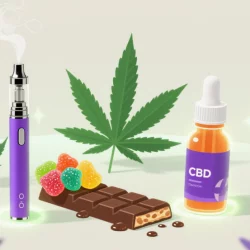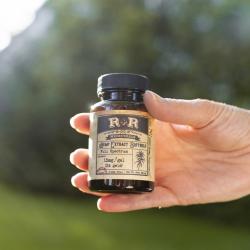Effects of Non-Medical Use of Cannabis
According to the World Health Organization (WHO), cannabis is the most widely used illicit drug globally. In 2013, an estimated 181.8 million people aged 15-64 years used cannabis for non-medical purposes globally (uncertainty estimates 128.5-232.1 million.
The WHO says that "cannabis dependence is a cluster of behavioral, cognitive and physiological phenomena which can develop after repeated cannabis use," and "there are some indications that the prevalence of cannabis dependence increased worldwide between 2001 and 2010."
Ironically, adolescents and young adults form the major chunk of marijuana users, as seen in many developed countries. Most of those addicted to cannabis started using it in their mid-teens.
Short-term effects of cannabis
- The immediate effects of cannabis are intoxication and disturbances in the level of consciousness, cognition, perception, behavior, and other psychophysiological functions and responses.
- Very few people who abuse cannabis for the first time may experience perturbing symptoms, like panic attacks, anxiety, hallucinations and vomiting. At times, these symptoms become so overbearing that the first time users may even contemplate seeking medical help.
- Overdose may also contribute to impaired driving and lead to traffic injuries.
- There are also recent evidence linking cannabis abuse to triggering coronary events. There is an increased risk of CVD in younger cannabis smokers.
Long-term effects of cannabis
- Regular cannabis users grow dependent, which is one out of every 10 users. One in six adolescents and one in every three daily users grow dependent on cannabis.
- Regular users during adolescence are prone to develop severe and persistent negative outcomes than use during adulthood.
- There is a close association between cannabis use and psychosis or schizophrenia. It is known to produce a full range of transient schizophrenia-like symptoms in users. It also exacerbates symptoms of other diseases in an individual. "Cannabis use is associated with lowering the age of onset of schizophrenia," according to the WHO report. "Symptoms of schizophrenia increase with cannabis use and strength."
- Adolescents using cannabis daily may exhibit many psychological outcomes. They may be involved in early school leaving, showing signs of depression, propensity to use other illicit drugs, showing suicidal behavior or cognitive impairment.
- Physical complications of long-term abuse of cannabis include acute bronchitis, myocardial infarctions, and strokes in young users, increased risk of cancer and other respiratory diseases. "There is suggestive evidence that testicular cancer is linked to cannabis smoking and this potential link should be investigated further," the WHO says.
Treatment of addiction
Treatment is possible to mitigate ill effects of cannabis abuse, and early intervention holds the key. Evidence-based treatments, comprehensive family prevention therapies, like training for parents, children and the family collectively and life skills programs that combine both a social competence curriculum and social influence approaches are some of the most proven techniques.
However, being in treatment for the entire period is crucial to recovery and keeping relapse at bay. Raising public awareness about the cannabis abuse pitfalls also go a long way.
Several American states have legalized medicinal use of marijuana and some have even permitted its recreational use, while many other states are also rooting for its legalization. But the fact that illicit and non-medical use of cannabis affects an individual cannot be denied. Non-medical use of cannabis should be avoided at any cost.
If somebody at home is struggling with an addiction, call the Sovereign Detox Services for immediate assistance. Treatment experts can be reached at 24/7 helpline number 855-682-0103 for information about holistic treatment for any addiction.
More to Read:
Previous Posts:






